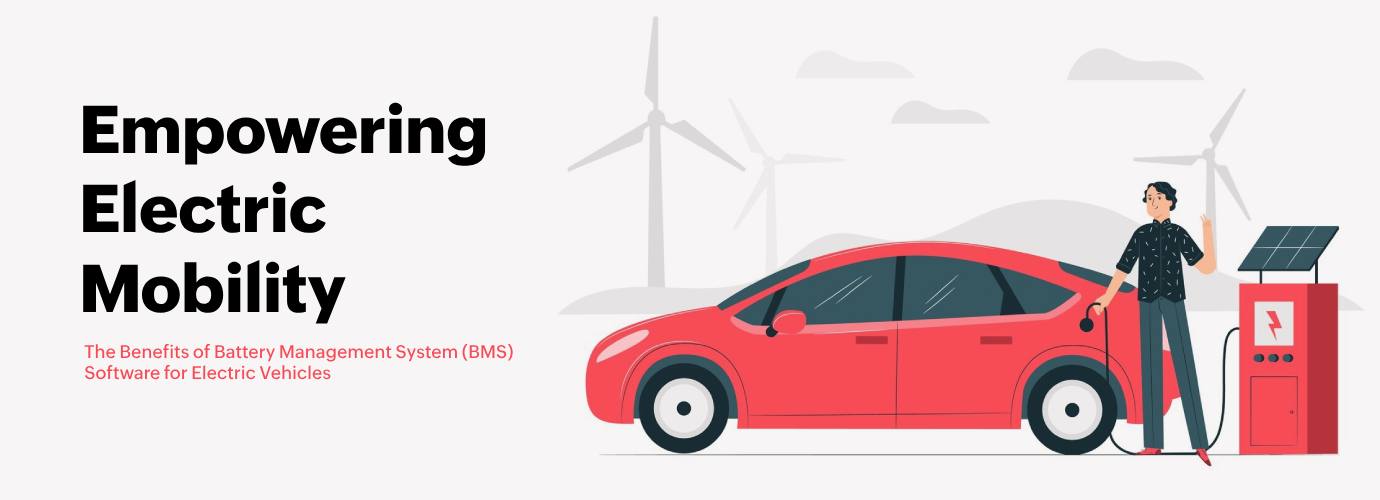Empowering Electric Mobility: The Benefits of Battery Management System (BMS) Software for Electric Vehicles
As the world transitions towards sustainable transportation, electric vehicles (EVs) have emerged as a pivotal solution to reduce carbon emissions and combat climate change. Central to the performance and longevity of EVs is the Battery Management System (BMS), a sophisticated software solution that monitors and controls the battery pack. In this article, we explore the benefits of BMS software for electric vehicles and how it contributes to the advancement of electric mobility.

One of the primary functions of BMS software is to ensure the optimal performance of the battery pack. By continuously monitoring key parameters such as voltage, current, temperature, and state of charge, the BMS software can effectively manage the battery's health and prevent degradation. This proactive approach not only extends the lifespan of the battery but also maximizes its energy efficiency, ultimately enhancing the overall performance of the electric vehicle.
Safety is paramount in electric vehicle technology, and BMS software plays a crucial role in mitigating potential risks associated with battery operation. Through real-time monitoring and fault detection capabilities, the software can identify abnormalities such as overcharging, over-discharging, and overheating, triggering appropriate safety measures to prevent hazardous situations. By proactively managing battery safety, BMS software instills confidence in both drivers and passengers, fostering trust in the reliability of electric vehicles.
BMS software leverages advanced algorithms and predictive analytics to optimize battery management strategies. By analyzing historical data and driving patterns, the software can adapt charging and discharging profiles to suit the specific requirements of the battery and vehicle. This intelligent battery management not only maximizes energy efficiency but also minimizes charging time and reduces overall operating costs. Additionally, BMS software can facilitate smart charging solutions, enabling EV owners to take advantage of off-peak electricity rates and renewable energy sources, further promoting sustainability.
Remote connectivity is a key feature of modern BMS software, allowing users to monitor the status of their electric vehicle's battery system from anywhere in the world. Through mobile applications or web-based platforms, drivers and fleet managers can access real-time data on battery performance, charging status, and diagnostics. This remote monitoring capability enables proactive maintenance and troubleshooting, minimizing downtime and optimizing vehicle uptime. Furthermore, BMS software can facilitate over-the-air (OTA) updates, ensuring that EVs remain up-to-date with the latest software enhancements and security patches.
For fleet operators and businesses deploying electric vehicles, BMS software offers valuable fleet management capabilities. By aggregating data from multiple vehicles, the software provides insights into fleet-wide performance metrics, including energy consumption, driving patterns, and maintenance needs. This data-driven approach enables fleet managers to optimize route planning, vehicle allocation, and charging infrastructure deployment, ultimately enhancing operational efficiency and reducing total cost of ownership. Moreover, BMS software can support predictive maintenance, identifying potential issues before they escalate and minimizing unplanned downtime.
As electric vehicles continue to gain traction worldwide, the role of Battery Management System (BMS) software becomes increasingly critical in maximizing the performance, safety, and efficiency of EV battery systems. From optimizing battery performance and enhancing safety to enabling intelligent battery management and remote monitoring, the benefits of BMS software are undeniable. By leveraging advanced software solutions, electric vehicle manufacturers, fleet operators, and drivers alike can unlock the full potential of electric mobility, accelerating the transition towards a sustainable transportation future.